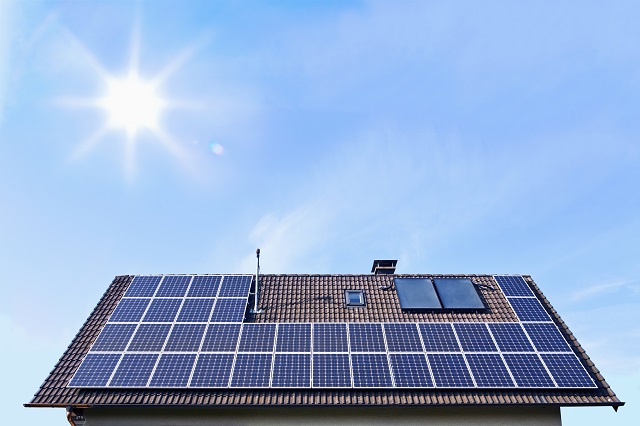
If you’re considering rooftop solar for your home, there’s no time like the present! Because the most generous government incentive, a federal tax credit covering 30 percent of the project, will start to be phased out at the end of 2019. Given the national average solar panel installation cost of $23,000, that’s $7,000 in savings that will soon be going away!
“The expiring tax credit is a motivating factor for many homeowners,” says Matt Johnson, co-owner of Namaste Solar, a Denver-based solar installer. To meet the December 31 deadline, he tells customers they need to be locked in by September at the latest.
The installation itself is complicated, much more so than installing a regular roof, plus the system needs to be connected to the grid, which means working with the local utility. If you also need to deal with a slow-moving homeowner’s association or historic board, the process will take even longer.
Here are five frequently asked questions to get you started.
How can I tell if my roof is a good fit for solar?
Most companies offer free roof assessments using satellite images of your home and its surrounding property. To determine if it’s worth taking that first step, do a quick assessment.
Do tall shade trees surround the roof? That’s probably a deal breaker, as is a roof with a lot of elevations and steep pitches. But if it’s a basic roof with plenty of exposure, preferably south-facing so that the sun catches it all day, you should be in business.
What is the average payback period for rooftop solar?
There are two factors: the amount of power your panels will produce, as discussed above, and the price you pay for electricity. In Colorado, where the retail price for electricity is a bit below the national average of 10.48 cents per kilowatt-hour (kWh), Johnson says the typical payback period is ten years. If you pay more for electricity, your return will be faster. That’s why solar is popular in Massachusetts and New Jersey (17 cents and 13 cents per kWh respectively) even though they’re not the sunniest states in the country.
Is there any advantage to leasing solar panels instead of purchasing them?
The benefit of leasing is that you avoid the steep upfront cost of installation, and your monthly lease payment should be less than your electric bill, at least in the beginning. But compared with owning, homeowners tend to save much less money over the long haul, in part because any tax benefits and incentives go to the solar leaser.
The other downside with leasing is that it can scare away home buyers if you decide to sell your home since they’ll have to take over the lease. That’s why most homeowners are now opting to purchase rooftop solar, often with the help of a low-interest loan.
What should I look for in a solar installer?
In a word: reputation. It’s relatively easy to set up shop as a solar installer, but a lot harder to run a successful business. As a result, scores of companies come and go each year. Look for an installer who has stood the test of time, ideally a decade or longer. And think twice about commission-based installers, since they won’t be as concerned about the viability of the system.
“We have limited install capacity, so we’re going to do an honest assessment of whether solar makes sense of not,” says Johnson, whose company also has the virtue of being employee-owned.
Finally, as with any major home improvement project, get multiple bids and make sure the company you go with has its state-required license and insurance.
I keep hearing about solar roof shingles. Are they an option?
Tesla made a splash in 2016 when it announced it was coming out with solar shingles made of glass over a photovoltaic substrate. The product promises the look of regular roof shingles from the ground, making them a more attractive option to traditional solar panels.
But the shingles still aren’t available. (Tesla is taking reservations on its website). Not to mention the upfront costs will be high. As a result, they’ll probably be a better fit for high-end new constructions, as opposed to a retrofit solution for homeowners looking to save money by adding solar to their existing roof.
 Going Green with Solar Panels in the Home
Going Green with Solar Panels in the Home  Home Energy Conservation for Kids
Home Energy Conservation for Kids  Solar Heating – About Passive & Active Systems
Solar Heating – About Passive & Active Systems  Go Green with Solar Panels
Go Green with Solar Panels  Water Conservation Throughout the Home
Water Conservation Throughout the Home 

Yess, its always good to change to something great which will save your money. May be its needs some initial investments but its a relief for about 15 years from your electricity bills as you would be saving too much. Recently we also got a rooftop solar installed for our building through Cleanmax Solar. And believe me, we have started saving on our electricity bills. So its a great choice to switch to solar panels as they will even save your energy resources and help you to go green.